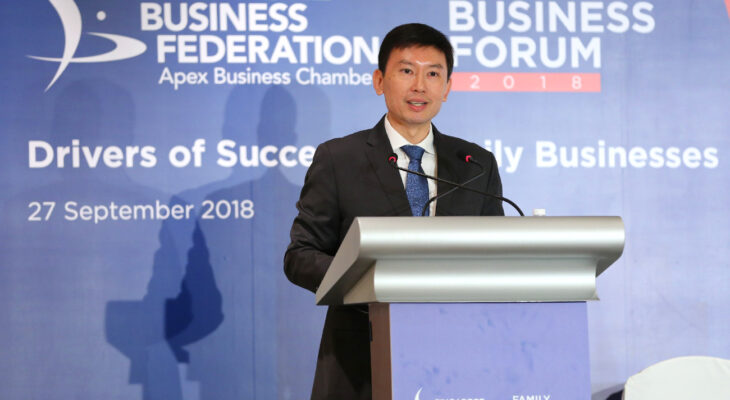
Competing for government contracts on quality
Enhancements to the government’s procurement process aim to help SMEs innovate and grow
Government agencies will award contracts in the future based on both price and quality, and not just price alone. This is one of the changes to be implemented following a review of the public sector’s procurement process last year.
In September, Senior Minister of State for Trade and Industry Mr Chee Hong Tat launched a set of collaterals developed by the Trade and Industry Ministry and the Ministry of Finance to highlight to SMEs how they can benefit from government projects through enterprise and innovation. The government procures over $20 billion worth of goods and services from businesses, with more than 80% of contracts going to SMEs.
“These enhancements reflect our commitment to use procurement as a way to help local companies innovate and grow, and to build capabilities and track records which can help them succeed when they venture overseas,” said Mr Chee, who was speaking at the Singapore Business Federation’s (SBF) Family Business Forum held on 27 September 2018.
We list enhancements to the government’s procurement process that local businesses need to be aware of:
Quality counts too
While the price-quality method has been used by government agencies to award contracts for some years already, particularly in the IT and construction industries, it will be the main option that they will use to evaluate tenders in the future.
As businesses will not compete on price alone, they can adopt a longer-term view and invest in capability building. This allows companies to differentiate themselves based on quality and other unique selling points of their goods or services. Over time, companies can build up their track records to win other contracts locally and overseas.
Sandbox trials
Besides the price-quality method, some types of projects will use a sandbox procurement approach to encourage innovation in the procurement process. Government agencies in charge of these projects will be able to experiment with different procurement approaches as long as they adhere to key procurement principles, said Mr Chee. The results of these sandbox trials can also be shared with other government agencies, and serve as “catalysts for changing existing rules and processes”.
Revealing budgets
A select number of projects could also use a new tender approach whereby the government agency reveals its budget for the project. While some agencies may not be comfortable with such an approach, it could help bidders focus on what they can offer within the budget cap, said Mr Chee.
Longer contracts
Government agencies will also offer longer contracts where possible, thus avoiding the need for repetitive tenders and creating a longer time frame for companies to invest and improve on their products and services.


















